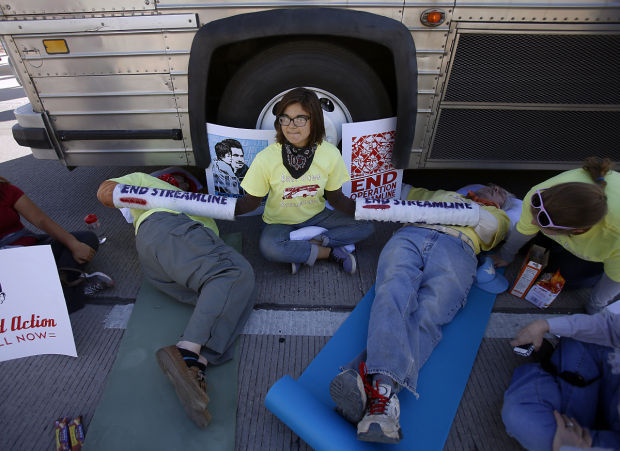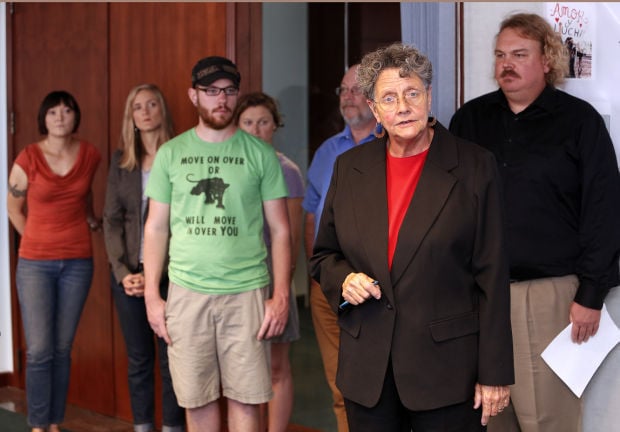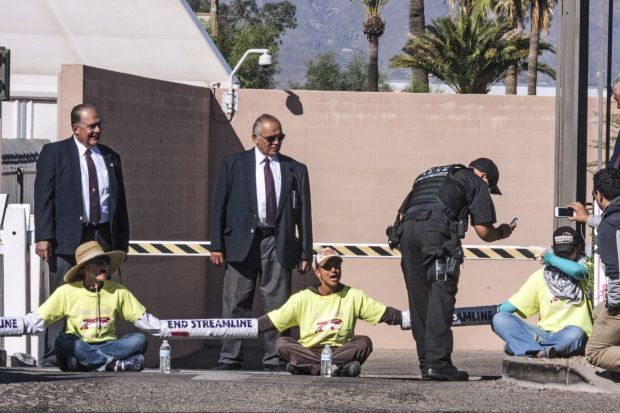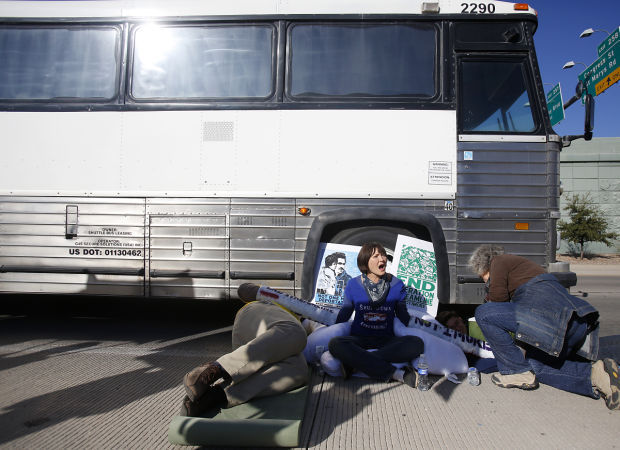Norlan Flores remembers the pain, the humiliation and the fear he felt in federal court, arms shackled to his waist and his legs chained together.
A Tucson police officer had stopped him for a traffic violation and for not having a valid driver’s license in August 2014, but the officer did not cite him. Still, Flores ended up in court several days later. He had no record. Yet he was treated like a criminal.
Flores worried about his wife and their two young children, the youngest born only hours before the police officer stopped him. He worried about his fate as he stood, like the several dozen other bewildered men, all shackled and shamed.
His court-appointed lawyer pushed him to plead guilty. The lawyers for the others did the same. The defendants had seconds, literally, to plead guilty.
“I did not want to plead guilty,” Flores said. He was in a court of law where he had a right to be heard. Or so he thought.
This was “Operation Streamline.”
This form of justice, unseen by most of the public, is dispensed by the federal government in its attempt to minimize illegal immigration. It’s fast. It’s about the numbers. It’s like moving cattle through the chutes.
“You are pushed to plead guilty, to push through as many people as possible,” said Flores, 29, originally from Nicaragua.
Flores’ “crime” was illegal re-entry, the same charges that thousands of men and women have faced in downtown federal court. Entering this country unauthorized is not a criminal act, but the men and women who leave Streamline do so with criminal records.
“Streamline criminalized me,” said Flores, sitting in his small South Tucson apartment where he lives with his Honduran-born wife, their two children, one of whom is a U.S. citizen, and his wife’s brother.
Since 2008 in the Evo A. DeConcini Federal Courthouse at the corner of West Congress Street and South Granada Avenue, thousands of people have been put through the highly expensive processing mill. The defendants, 70 at a time, are all charged with illegal entry, a misdemeanor, or illegal re-entry, a felony. They waive their rights, are put on trial and sentenced. Sentences range from one to six months, served in local, state but usually for-profit prisons, which, not coincidently, have grown exponentially.
In protest of this unjust process, activists closed down “Operation Streamline” on Oct. 11, 2013, when they peacefully impeded two buses, on the Interstate 10 frontage road. The buses take undocumented immigrants to the courthouse.
On Monday, 13 activists are to go on trial for their civil disobedience.
Their ages range from 20 to 68. They are charged with a number of misdemeanors, including obstruction of governmental operations, hindering prosecution, disorderly conduct and resisting arrest.
The defendants are: Maryada Esther Vallet, Gabriel Matthew Schivone, Alexandra Nicole Sabo, Angelica Moreno Loreto, Charles Edward Kaufman and Devora Gonzalez. Also Michelle Marie Jahnke, Stephen Russell Johnston, Paula Lee McPheeters, Julia Mihich Harden, Sarah Anne Launius, Ethan John Beasley and Paula Ann Miller.
The trial, which is expected to last several days, will be held at the new Pima County Justice Court, 240 N. Stone Ave.
Last year, six activists were found guilty in federal court for their role in the 2013 protest. They were charged with disorderly conduct on federal property and failure to follow the direction of a federal police officer.
Flores is proud that a few people stood up to the assembly line form of justice. He’s proud that some people care about immigrants like him.
Fortunately for him, he was not deported after he served three months in prison. Flores, who is part of the Southside Worker Center at Southside Presbyterian Church, has received community support to fight his deportation. In addition he has a U-Visa, which allows him to stay in the country and receive a work permit. The special visas, limited in number, are given to undocumented immigrants who are victims of serious crimes. Flores was assaulted in 2011.
But Operation Streamline, with its indifference to people and its speed at any cost, left Flores feeling that he was victim of another assault. An assault on his dignity and universal rights that all human beings possess.
“There was no clarity in the courtroom. I had no voice,” he said. “There was no justice.”







